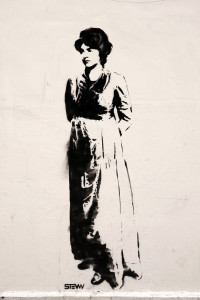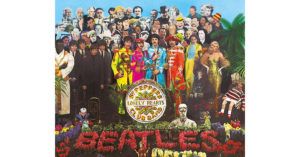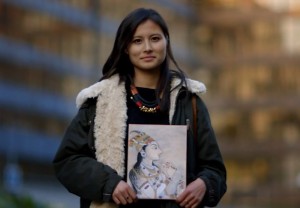
Photo: Stencil of Mary Wollstonecraft by Stewy on Newington Green wall from Rex Features
Since ancient times, it has been the practice of the victors to obliterate the culture of the losers. The images of ISIS destroying the world’s historical monuments are a sad reminder of the totalitarian nature of conquest.
The first cultural conquest wasn’t of a nation or tribe however, it was of women and specifically their means to self-expression. In the 23rd Century BC, the high priestess of Sumer, Enheduanna, invented literature. She was the first person to realise that writing could do more than record a contract, send a message, or convey facts. It was her genius and vision that resulted in the creation of the poet, poetry, and literary form.
Sargon the Great, her father, had appointed Enheduanna high priestess in the hope that she would be able to help him unite the disparate cities of Sumer into a single functioning empire. She more than rose to the challenge, using religious poetry to create a unified theological tradition that embraced all the Sumerian gods and goddesses under one political entity, the rule of Sargon.
Continue reading…












